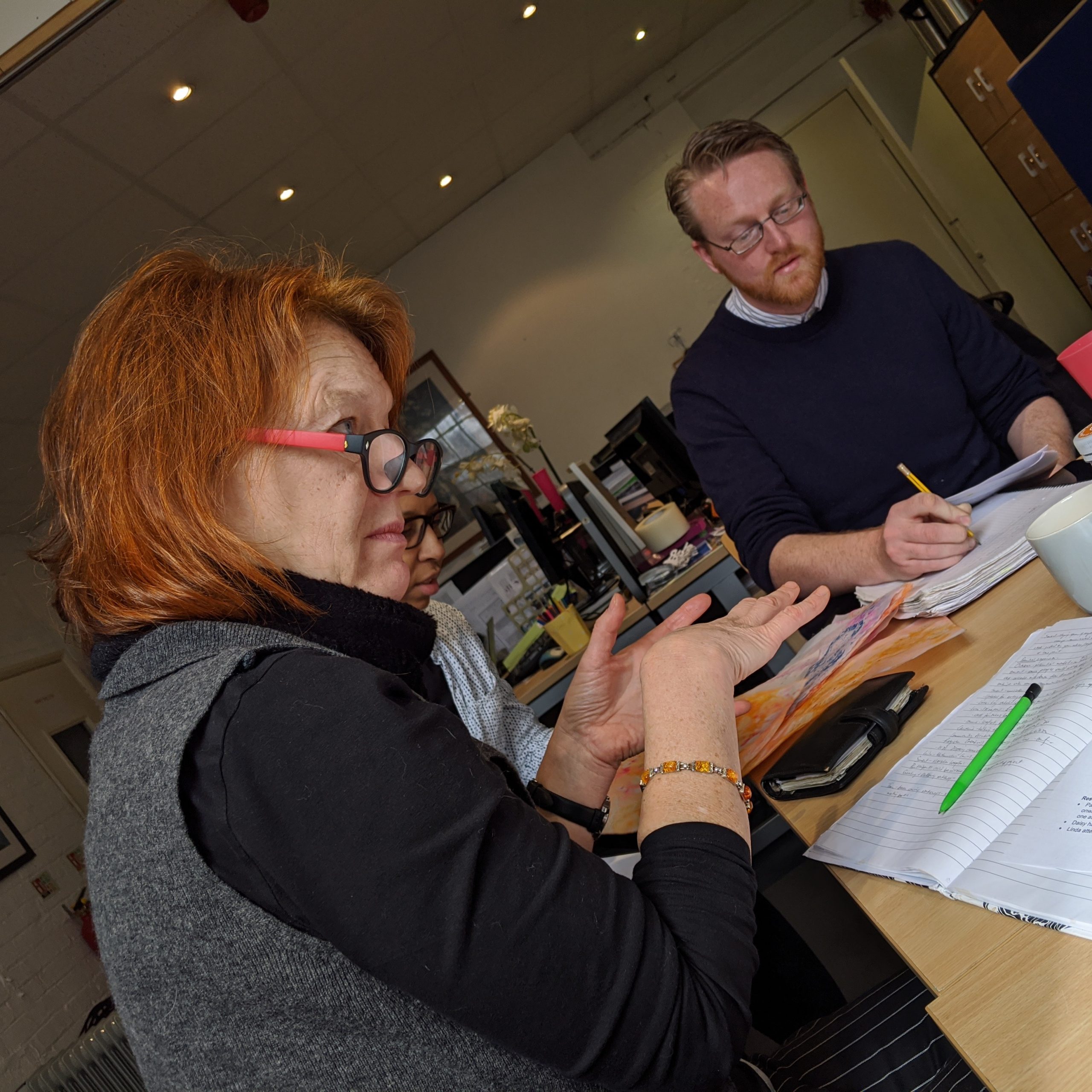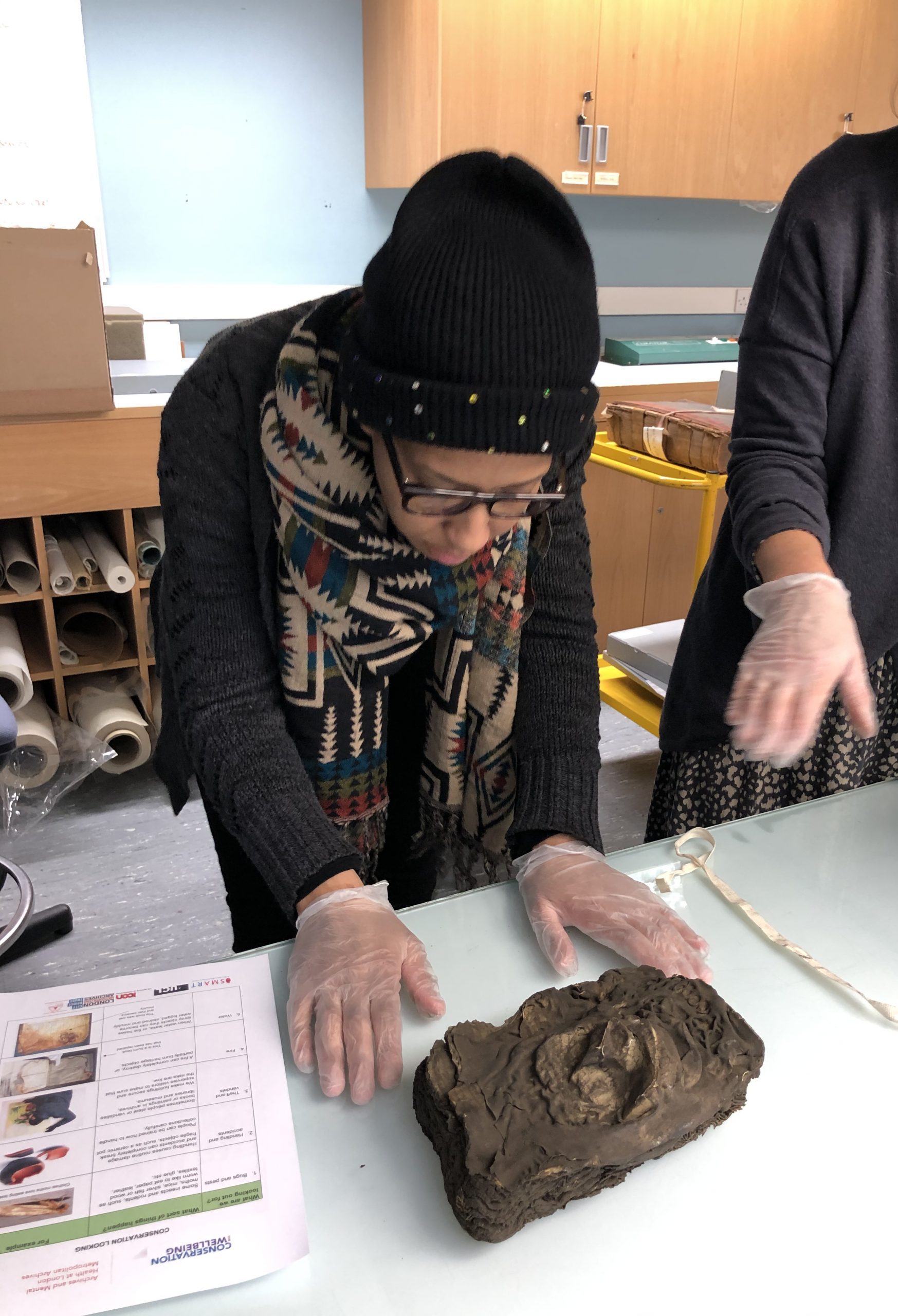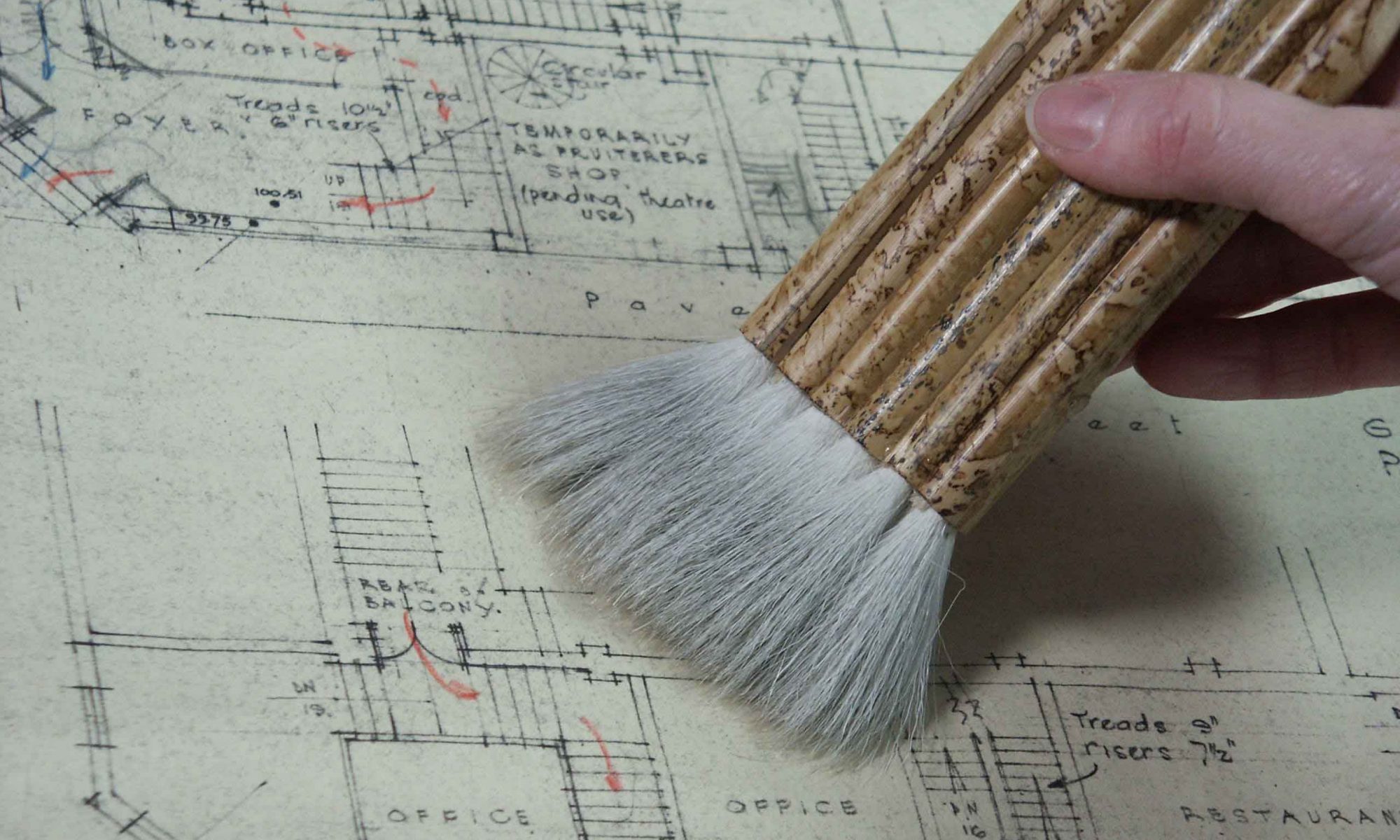Midpoint Focus Groups with Staff & Participants, London Metropolitan Archives and SMART, 6th & 13th March 2020.
In the few weeks leading up to the UK lockdown due to Covid-19, I met with participants and staff of the Conservation for Wellbeing project, to learn how they felt the project has gone so far.
Looking back, it was a strange time, in which many were feeling growing anxiety and anticipation of the measures to come. The focus groups, for myself at least, came as a welcome break from conversation about the corona virus, and yet it seems obvious now that even these conversations were impacted by the collective consciousness of the pandemic.
I had first met staff during week 5 of the project sessions at LMA. The following week, five days before UK schools closed, I had a session with participants. As the researcher on the C4W project I had not met all the participants before. We gathered in the meeting room at SMART with cups of tea and some participants still eating lunch, to talk for an hour and reflect on all aspects of the project.

The participants spoke openly, and shared some fascinating insights into what has been most important and resonant for them about the activities and the archives. Particular sessions stood out, such as making boxes to store the archives, and the week in which participants learnt about the tiny pests which pose a threat to documents. Several participants made connections to memories from their own lives, including occasions when they and their families have used more manual photography methods to record important occasions. Participants talked about how the quality of a photograph is affected by the process through which it is produced, and how replicas or well stored negatives might change the value of each image.
All participants made connections to their own memories, and thought together about value, significance and meaning, particularly as these are held within articles and objects they themselves have collected throughout their lives. They each talked about things that they protect and preserve due to their importance or relevance to them. The group explored what it is that can transcend time within archives, and how the records hold resonances which can be shared with people who never met the individuals whose lives they relate to.
They talked about how interesting and valuable it has been to learn about a field of work most people know little about. The project has given people an opportunity to enter a rarely seen world, in which every day involves taking care of snap shots and pieces of life stories. There have been lots of surprises, and elements of the work that the participants could not have imagined.
One participant explained;
“It was just really interesting how careful you have to be. You have to treat these things like you would treat a human being basically.”

Now is a time when we all may be thinking more about how we take care of each other and ourselves, and about what is most important to preserve or know and how those things can be kept safe. We are thinking more than usual about what matters most to us. This is a hugely significant point in history, which we are witnessing for ourselves as it emerges every day. I wonder how people may be recording this time for themselves, whether they will be keeping diaries more, or collecting things to keep when we re-emerge from lockdown, and life begins to resume. What will we want to remember or preserve for others to see, from this strange and poignant time?
Daisy Rubinstein, art therapist and C4W evaluation consultant
